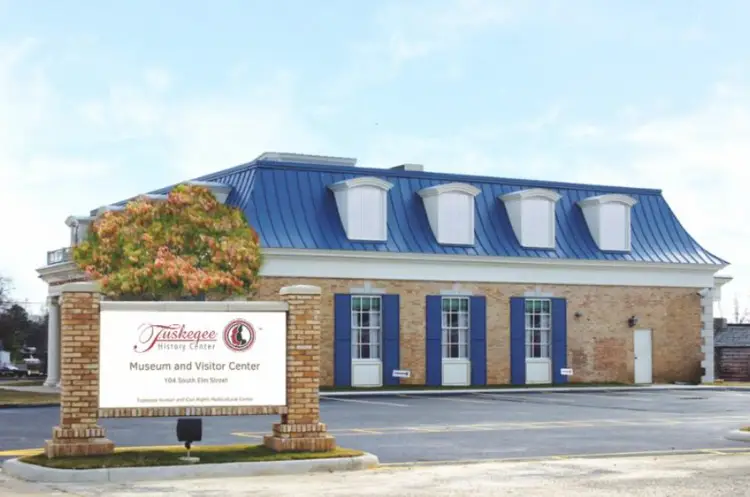Organizations in Action: Tuskegee’s Role in the Civil Rights Struggle
Organizations in Action: Tuskegee’s Role in the Civil Rights Struggle
In 1901, Booker T. Washington sent a letter to the members of the Alabama Constitution Committee saying, “The Negro asks that since he is taxed, works the roads, is punished for crime, is called upon to defend his country, that he have some humble share in choosing those who rule over him.” During that time, Tuskegee Institute leader Washington secretly financed and supported civil rights legal cases related to African Americans, voting, and jury composition.
In the subsequent 70 years, Tuskegee and Macon County became a civil rights battleground in the struggle of strategic civic action for African Americans pursuing full citizenship in voting rights, equal public education, and jury participation. With non-violence as a way of life, both adult and student organizations became models of grassroots activism. The adult organization- the Tuskegee Civic Association, and the student organization – the Tuskegee Institute Advancement League, had civic education and action as a common foundation. These local organizations used multiple weapons to fight – including meetings (small committee meetings and large, mass meetings, often held in churches), programs with notable speakers, protests and demonstrations, a selective buying campaign, and legal action.
Tuskegee Civic Association
Founded in the early 1940s, the Tuskegee Civic Association (TCA) was a civic education and civic action organization. Since the mid ‘40s, African Americans in Tuskegee looked to the American legal system to remedy voting rights issues. Though not initially successful, TCA continued to look to the courts for relief and ultimately found it in a 1960s U.S. Supreme Courtroom concerning the matter of gerrymandering, stemming from legal action originally initiated by TCA.
Generally, two groups of people constituted TCA membership – college faculty and administrators, as well as medical and health care professionals employed by the federal government at the recently established Veterans Administration Hospital, which was designed to serve African American veterans living in the legally and socially segregated South. This well educated and economically secure populace sought and expected to be able to register to vote and influence the operation of the local municipal and county government in the community in which they lived. Some even dared to run for public office.
Inside the City Limits or Outside the City Limits
Despite the best efforts of the Macon County Board of Registrars to keep African Americans from registering to vote, their numbers increased to a level that caught the attention of the county’s legislator, Senator Sam Engelhardt, Executive Secretary of the White Citizens Councils of Alabama.
Engelhardt sponsored a bill, which became Alabama Act 140. When the act became law, most African Americans were gerrymandered outside the city limits. Although they may have become registered voters, they could not vote in local municipal elections because city limit lines had been drawn placing them outside the city limits. The bill passed unanimously and without debate in the Alabama legislature.
The matter of gerrymandering became a unifier of African Americans throughout Macon County. Those well educated with stable employment were viewed the same as their rural neighbors, many of whom were farmers, with limited formal education, one generation away from sharecropping as a way of life.
TCA took legal action and eventually found itself in Washington D.C. in the U.S. Supreme Court, which ruled, in an unanimous decision, the Tuskegee gerrymander to be unconstitutional.
Trade with Your Friends
To combat gerrymandering, TCA spearheaded a ‘Trade with Your Friends’ selective buying campaign. Downtown businesses were boycotted unless they became friends and fought the gerrymander. No merchants ’became friends’. The impact of the campaign was felt throughout the county.
Macon County and Alabama Public School Desegregation
While Brown v. Board of Education meant public school integration for school systems across America in 1954, that was not the case in Tuskegee, Macon County or the state of Alabama as a whole. Not until TCA initiated legal action in 1963 to desegregate the local public school system, was there widespread public school integration in the state of Alabama on the secondary and post secondary education levels.
Jury Discrimination
In 1964, in Alabama, African Americans were excluded from serving on juries, because of their race. In 1966, in response to legal action initiated by TCA, a federal judge’s order stated, “This case is one of the first civil actions brought to remedy systematic exclusion of Negroes from jury service, generally.”
Tuskegee Institute Advancement League
Founded in the 1960s, the Tuskegee Institute Advancement League (TIAL) was a student led organization whose objectives included involving Tuskegee Institute college students in the civil rights movement. TIAL sought to support other civil rights groups, including SNCC (Student Non-Violent Coordinating Committee). College students from Tuskegee conducted voter registration training in Alabama Black Belt rural communities, including Macon County.
Tuskegee students, with their growing academic knowledge and guidance from engaged collegiate faculty, had a chance to put their philosophical theories and non-violent principles into practice when they caravanned to Montgomery on March 9, 1965 and converged on the state capitol in Montgomery, as part of the Selma to Montgomery March. They stood side by side their Alabama State student peers as the Selma marchers slowly made their way to Montgomery.
Sammy Younge, Jr.
A greater challenge for Tuskegee students came when their non-violence training and principles were put to the test when one of their own – Sammy Younge, Jr. was murdered in 1966. Younge, the son of a Veterans Administration Hospital employee, was one of TIAL’s most active members. He also worked with SNCC. He was involved in boycotting and demonstrating for jobs, access to public accommodations, and voting rights.
Seeking to use a restroom at a downtown gas station, Younge was shot and killed by a gas station attendant. Younge’s death triggered a series of protests and marches. Later, an all-white jury found the gas station attendant innocent of murder.
Influencing Elections
Tuskegee students helped usher in a new generation of African American elected officials. A bi-racial city council became a reality. And, the students’ voter registration training and support for individuals running for public office help put in place several ‘firsts’ since Reconstruction – Lucius Amerson – first elected African American sheriff in the South, and both Fred Gray and Thomas Reed were elected Alabama state legislators, the first African Americans in the legislature since Reconstruction. And, in the early 1970s, Johnny Ford became Tuskegee’s first elected African American mayor.
A Future Generation of Leadership
Tuskegee was a training ground for African American leaders of all ages and professions. During the student protests in Tuskegee, came a career opportunity for one student in particular. Tom Joyner seized the opportunity to have a program on a local radio station, and launched a highly successful career in media.
As those of his father’s generation had used the microphone in church pulpits to communicate messages of non-violence, so has Joyner used his nationally syndicated radio program, the Tom Joyner Morning Show, to reach millions of African Americans and engage them in deliberate dialogue and socially conscious action. Joyner hosted and planned nationally televised town hall meetings on the state of Black America. These forums and his show have served as a media outlets for presidential candidates to reach out to the African American community. And, his board room interactions have been part of strategic engagement with corporate America about matters of concern to African American consumers.
United in Education and Action
Both organizations – Tuskegee Civic Association and the Tuskegee Institute Advancement League – were involved in and promoted civic education and civic action. With a common goal of first class citizenship for local African Americans, the organizations used different tactics and executed different actions to achieve results that can be beneficial to all American citizens interested in improving their local communities.

